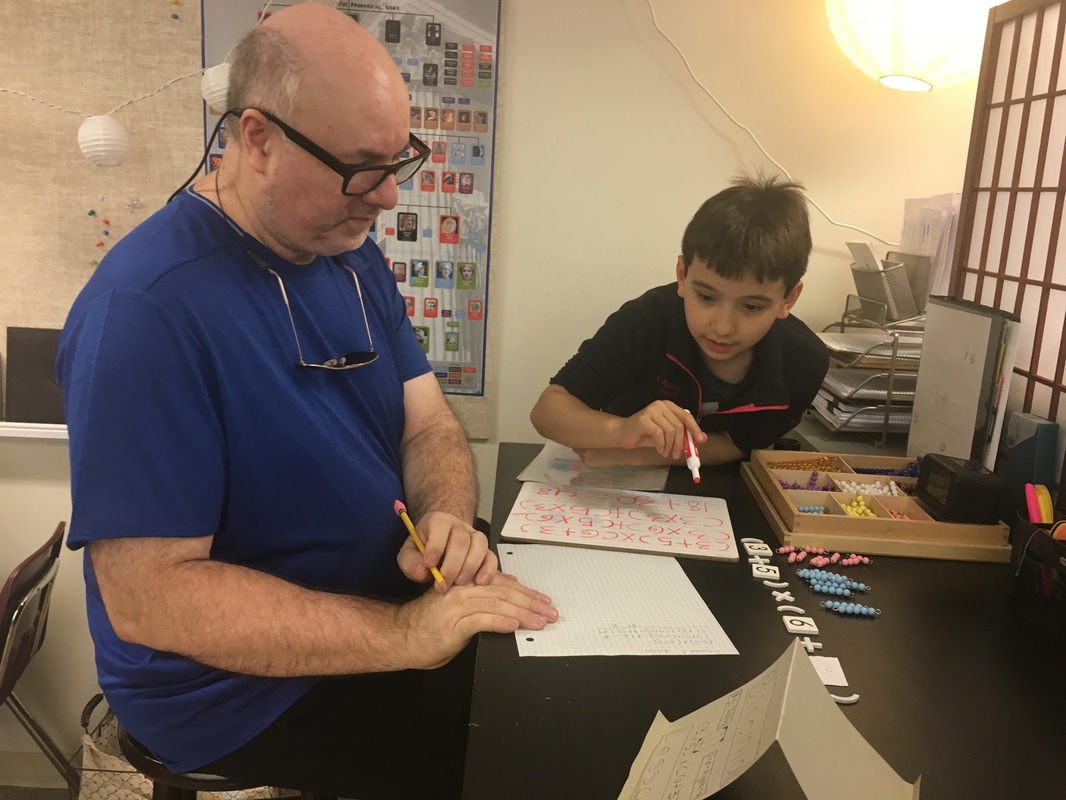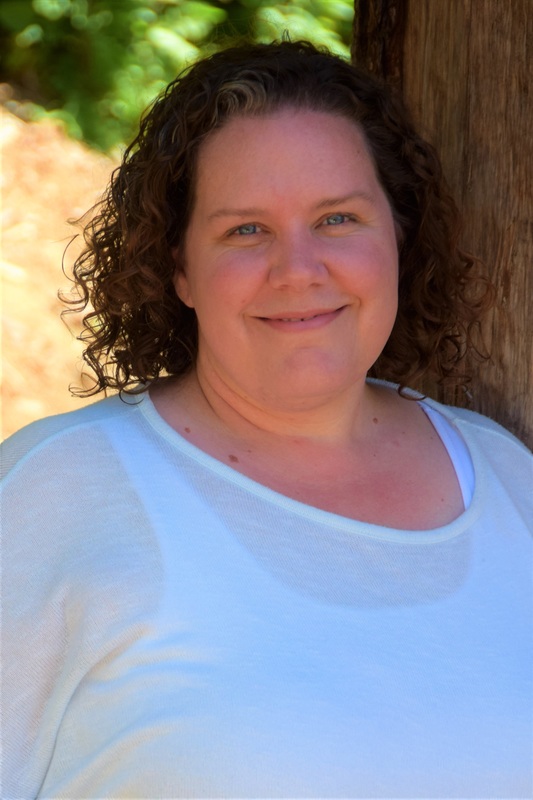|
Montessori education is what we do around here. We are doing our best to do authentic Montessori: to be worthy of the name, to support and guide the development of each child, to nurture and keep passionate teachers happy. We are on a journey of continuous improvement. We are always striving to improve and refine our approach to Montessori education.
The American Montessori Society (AMS) School Accreditation process is the main path for this somewhat arduous, discovery-filled journey. It is our commitment to our families that the children at MCH are having the best possible Montessori experience. We achieved our initial Accreditation almost seven years ago, and now we’re embarking on the Re-Accreditation path! We have formed multiple committees of faculty and staff who are tasked with examining in fine detail every single aspect of Montessori Children’s House from what our Montessori teachers do to how our families feel to governance and finance and beyond. We are spending many in-service days this year defining our strengths, identifying our challenges, ensuring that AMS standards are being met, making plans for our future, and refining our vision. This is an 18-month long process. Right now, we’re almost one-third of the way into it. Every committee has begun its work, every staff member has given their feedback, and now we’re excited to begin collecting data. We will be soliciting information from parents all year long, and we really appreciate your involvement in this vital process. We are learning so much about ourselves already. If everything goes as planned and we hit all of our deadlines, we’ll be welcoming a visiting Accreditation team from AMS next fall. This is an exciting time for us! We will be sharing periodic updates and sending out surveys. Let us know if you have any questions!
0 Comments
 Our Sixth Year students are on the brink of completing their Island Projects! Island Night is coming! They've been on a months-long journey across an unknown ocean and suddenly land is in sight. This is not just another project - Island Project is a year-long thesis project that is, at its core, a a pivotal academic and personal achievement. It requires students to pull together everything they know about history, geography, language arts and earth science. It demands organization, long-term time management, focus and dedication, collaboration, communication and inspiration. The Island Project is the ultimate academic experience of personal responsibility and accountability. It is a treacherous, beautiful path that results in many triumphs and failures, Island Night is the culmination of a full year's worth of work, fortitude, imagination and integration. Almost a decade ago when I took my Upper Elementary training, I was introduced to the fact that Sixth Year students are masters of their domain. They are competent and confident in many different ways. They are also on the brink of adolescence and often enter that journey in a very real way during their Sixth Year. They have tremendous energy and capabilities, and starting a very serious search for their place in the world. This is the most amazing time for them to be in the Montessori Elementary classroom because it is full of potential instead of limits. They have the boundless creative energy of children and are developing the abstract thinking capacities of adolescents. This is the time to make them leaders and demand hard work! The Island Project evolves throughout the year, and is truly interdisciplinary. At the heart of the project is an imaginary island. Children conduct research of islands around the world until they find a region that seems most exciting to them. Some children settle in the Caribbean, others in the South Pacific, others in the Arctic... it completely depends on their interest. Then they choose longitude and latitude coordinates and create an island that has never existed. Despite the imaginary origins, the Island Project is rooted in reality. Everything about their island - from its geological history to its human event timeline - has to be plausible and carefully evaluated. There is a tremendous amount of freedom in the decisions children make about their islands, with the actual planet and its human history as the only constraints. I hope that you are beginning to see that this is huge work for Sixth Year students! It is also the most important way that we help them prepare for their upcoming transition to middle school. Throughout their Sixth Year, they face adversity, stress, success, connection, excitement. This is real-life practice. By the end of their Island Project, they have become confident in themselves; they know deeply what comes easily and what is hard. They know how to seek feedback, how to meet deadlines, how to handle high levels of responsibility, and so much more. This is a profound preparation for secondary education! I hope that we can help your child start dreaming about their own Sixth Year Island Project, too! There are so many different aspects of school life. In Montessori, so much of what we do is based on freedom, responsibility and choice. It is our most important work to help children prepare themselves to be resilient, curious and excited about learning.
Once a year in the spring, we also help them learn to take a standardized test. Annually, we administer the Iowa Test of Basic Skills (ITBS) to our students in Grades 3-6. The State of Washington does not require us to test students, however our low-stress approach to standardized testing helps the students get familiar with the process of taking this kind of test. We know that our students are most likely going to encounter this type of test-taking experience in their futures, and that we need to help them prepare for the eventuality. We approach the testing as a practical life experience; that is, it’s about skill-development and practice. For us, the tests are a tool by which we can understand each student’s standardized test-taking skills and experience. Over the years, we have consistently noticed that the test results validate our own more authentic and relevant academic assessments. In general, we hope to make the testing experience interesting, relaxed and low-stress for the students. We have observed that the children are excited for ITBS every year, and enjoy sharing the experience with each other. It happened again this week! We are proud of their efforts, the seriousness with which they approached their ITBS work and the way they embrace this as a learning experience. Every spring, we welcome parents into the Elementary classroom for a celebration of math. Every spring, students present their favorite math lessons to their community. And every spring, we emerge from Math Day feeling inspired and re-invigorated!
Montessori Elementary math is a unique and wonderful experience for kids. It truly builds solid skills foundations, love of math, and deep understanding of concepts. This has been proven over and over again in studies and in personal lives. As teachers, we are the guides, focused on leading students toward discovery instead of teaching them. This is a fine distinction rooted in the fact that Dr. Montessori knew that children need to be given the tools to construct their own understanding. We see a lot of "a-ha" moments in our classrooms and they are always a complete joy. What is always remarkable to me is how the children talk about their math experiences, and how articulate they are about what makes these experiences unique and important. This year, students created this list of important things to know about Montessori math: - Students choose their own lessons - Independence! - Math is hands-on - there are things to touch - "Freedom to do what you need to do." - FUN -Everybody learns at their own pace. -Visual and hand-eye coordination come together -Materials are colorful - Moving from concrete to abstract - Complex math is made simple - Variety of different kinds of math -Going at your own pace means taking your time -Reasonable due dates and reasonable expectations -Children teach themselves lessons and make their own discoveries -Teachers are guides We hope that Math Day brought as many "a-ha!" moments to our parent participants and to our students as it did to us. Nicole Champoux Elementary Program Director Upper Elementary Teacher Montessori Children's House |
Nicole ChampouxElementary Program Director Archives
November 2018
Categories |
|
Montessori Children's House
5003 218th Ave. NE Redmond, WA 98053 Phone: 425-868-7805 [email protected] For Records Requests, please reach out to [email protected]. |
Founded in 1987
|



 RSS Feed
RSS Feed
